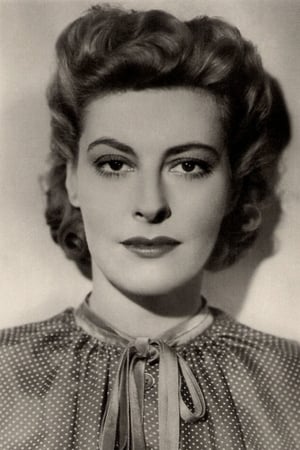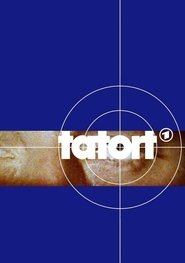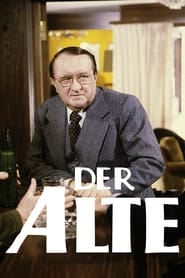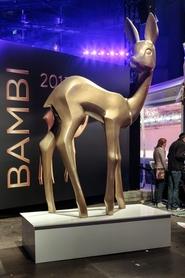
Marianne Hoppe
Born in Rostock, Hoppe became a leading lady of stage and films in Germany. She was born into a wealthy landowning family and was initially privately educated on her father's private estate. Later she attended school in Berlin and in Weimar, where she began to attend theatre.[1] Hoppe first performed at 17 as a member of Berlin's Deutsches Theater under director Max Reinhardt. In 1935 she was hired by the controversial German actor and Director of the Prussian State Theatre under the Third Reich, Gustav Gründgens. They were married from 1936-46, until their divorce. Speaking years after the marriage had ended Hoppe stated, "He was my love, but never my great love, that was work."[1] One of the characters in the film Mephisto was reportedly based on her. Hoppe made no secret of her contacts with the Nazi elite in the 1930s/40s, including being invited to dinner by Hitler.[2] Her role in Der Schimmelreiter (The Rider of the White Horse, 1934) made her famous almost overnight, while her "Aryan" face made her a darling of the Nazi elite.[1] Later Hoppe would label this period of her life as "the black page in my golden book".[1] During her time acting at the home of the Prussian State Theatre, the Schauspielhaus, Hoppe developed her analytical approach to acting, which she stated consisted in her "taking apart every sentence" and giving the use of language a brilliance. This method was to be associated with Hoppe throughout her working life.[1] In 1946 her only child, Benedikt Johann Percy Gründgens, was born. Four years later after her divorce from Gründgens, Hoppe had a great success as Blanche Dubois in Tennessee Williams's A Streetcar Named Desire, and increasingly played avant-garde roles, written by authors such as Heiner Muller (Quartett, 1994) and Thomas Bernhard, who became her partner in private life as well. She became a favourite of the young and iconoclastic directors Claus Peymann, Robert Wilson and Frank Castorf. Hoppe died in Siegsdorf, Bavaria, in 2002 from natural causes, aged 93. "German theater has lost its queen", said Claus Peymann of the Berliner Ensemble, whose theatre featured Hoppe's last performance, in Bertolt Brecht's Resistible Rise of Arturo Ui, in December 1997.[2] In one of her last interviews Hoppe stated, "I have a go at happiness every day. That takes discipline, a virtue every halfway decent actor should have."
Known For
Credits
- 2017 · Hitler's Hollywood as Various Roles (archive footage)
- 2000 · The Queen – Marianne Hoppe as
- 1998 · Sabine Christiansen as Self
- 1991 · Tassilo - Ein Fall für sich as Maximiliane
- 1991 · Der Tod kam als Freund as Frau Weinstein
- 1990 · Zeil um Zehn as Self
- 1989 · Geschichten hinterm Deich as
- 1989 · Blauer Panther as Self
- 1989 · Heldenplatz as Hedwig Schuster
- 1988 · Schloß Königswald as Gräfin Hohenlohe
- 1988 · Bei Thea as Thea Ammer
- 1987 · Francesca as Herself
- 1986 · Kir Royal as Claire Maetzig
- 1986 · Showgeschichten as Self
- 1984 · Er-Götz-liches as Zweite Frau Professor
- 1984 · Goldene Kamera as Self
- 1983 · Marianne and Sophie as Marianne
- 1983 · Leute as Self
- 1981 · Die Baronin - Fontane machte sie unsterblich as Elisabeth v. Ardenne
- 1981 · Der Richter as Mutter
- 1980 · Heut' abend as Self
- 1979 · Bavarian Film Awards as Self
- 1979 · Zeugen des Jahrhunderts as Self
- 1979 · Die Magermilchbande as Tante Doda
- 1978 · Tod eines Vaters as Mother
- 1977 · Der Alte as Johanna Martinek
- 1977 · Der Alte as Charlotte Steinburger
- 1975 · Wrong Move as Mother
- 1975 · Heiratskandidaten as Tante Thea
- 1975 · Im Hause des Kommerzienrates as Präsidentin
- 1974 · 3 nach 9 as Self
- 1970 · Scene of the Crime as Witness
- 1969 · Der Kommissar as Johanna Blago
- 1969 · Der Kommissar as Lotte Boszilke
- 1969 · Der Kommissar as Amalie Schöndorf
- 1969 · Der Kommissar as Charlotte Echte
- 1969 · Tag für Tag as Mrs. Bryant
- 1968 · König Richard II as Herzogin von Gloster
- 1967 · Death Runs After Them as Madame Brassac
- 1967 · Andere Zeiten - andere Sitten as Self
- 1967 · Die Mission as Selma Selig
- 1966 · Briefe nach Luzern as Madame Hunter
- 1965 · A Winter's Tale as Die Zeit
- 1965 · Das Leben des Horace A.W. Tabor - Ein Stück aus den Tagen der letzten Könige as Augusta
- 1965 · Ten Little Indians as Elsa Grohmann
- 1964 · Conquerors of Arkansas as Mrs. Brendel
- 1964 · Gut gefragt ist halb gewonnen as Self
- 1964 · Harlekinade as Edna Selby
- 1964 · Die Teilnahme as Patricia Taylor
- 1964 · Grimme Award as Self
- 1963 · König Ödipus as Iokasta
- 1963 · Blick zurück im Film as Self
- 1962 · Treasure of Silver Lake as Mrs. Butler
- 1962 · Rose Bernd as Henriette Flamm
- 1962 · Der Walzer der Toreros as Generalin
- 1961 · The Strange Countess as Mary Pinder, verw. Moron
- 1958 · 13 Little Donkeys and the Sun Court as Martha Krapp
- 1955 · Was bin ich? as Self
- 1954 · Der Mann meines Lebens as Helga Dargatter
- 1951 · German Film Award as Self
- 1950 · Nur eine Nacht as die Frau
- 1949 · Schicksal aus zweiter Hand as Irene Scholz
- 1948 · Das verlorene Gesicht as Johanna Stegen alias Luscha
- 1948 · Bambi as Self
- 1945 · Das Leben geht weiter as Lenore Carius
- 1944 · Ich brauche Dich as Julia Bach
- 1943 · Romance in a Minor Key as Madeleine
- 1942 · Stimme des Herzens as Felicitas Iversen
- 1941 · Goodbye, Franziska as Franziska Tiemann
- 1939 · Kongo-Express as Renate Brinkmann
- 1939 · Der Schritt vom Wege as Effi Briest
- 1937 · Gabriele eins, zwei, drei as Gabriele Brodersen
- 1937 · Love in Stunt Flying as Mabel Atkinson
- 1937 · The Sovereign as Inken Peters
- 1936 · Eine Frau ohne Bedeutung as Hester
- 1936 · When the Cock Crows as Marie
- 1935 · Anschlag auf Schweda as Regine Kessler
- 1935 · Die Werft zum grauen Hecht as Käthe Liebenow
- 1935 · Oberwachtmeister Schwenke as Maria Schönborn, Verkäuferin im Blumenhaus Floris
- 1935 · Alles hört auf mein Kommando as Hella Bergson
- 1934 · Black Fighter Johanna as Johanna Luerssen
- 1934 · Trouble with Jolanthe as Anna
- 1934 · The Rider on the White Horse as Elke Volkerts
- 1933 · Heideschulmeister Uwe Karsten as Ursula Diewen
- 1933 · Der Judas von Tirol as Josefa


